This special feature will showcase the current and future innovation in facilities management. We ask the industry experts on how facilities management companies have innovated in terms of technology, man-management and how they are encouraging sustainable practices in buildings in which they manage.
Emrill
Gopalakrishnan, Operations Director, Emrill, on how the company’s introduction of their new efficiency-enhancing app is helping them usher into a new age of innovation
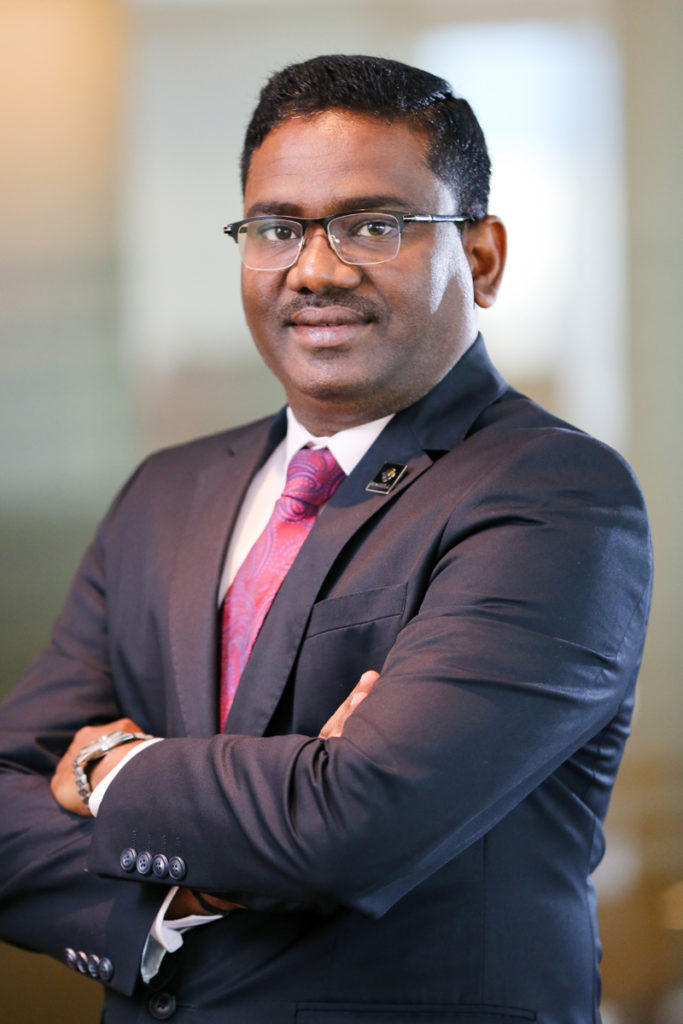
The Middle East’s FM sector is maturing rapidly, and we are seeing an increased demand for services as well as the emergence of new trends, such as the increased adoption of new technology. Innovation is at the core of everything Emrill does, and our clients benefit from the latest technology and equipment.
Earlier this year, Emrill launched an efficiency-enhancing app, specifically designed to enhance and refine the delivery of soft FM services in both horizontal and high-rise communities. Via the app, staff are assigned optimised routes and task schedules. As they move along the mapped-out route, tasks pop up on their mobile devices, determined by proximity to the scheduled tasks. As staff complete jobs, they upload photographs, which are automatically synced to the supervisor’s interface. This has increased transparency and visibility of supervision with improved quality assurance. This technology-driven approach to soft FM services has enabled us to pass on this value-add to our clients.
The app is also having a positive effect on the environment. As machine operators are using digital checklists along optimised routes, this has resulted in reduced paper and fuel consumption. Furthermore, it has also led to the development of a digital work permit system, which is geo-fenced, ensuring compliance to statutory and regulatory requirements.
We ensure sustainable practices are applied to all areas of the business and provide solutions that help clients work towards carbon neutrality and sustainability. In 2018, we launched an organic vegetable garden, accessible to 5,000 residents living in 1,500 apartments. We also developed a 700 sqm plot of sand into a sustainability park. The newly laid grass and shrubs were fertilised with recycled food waste.
Further to providing a communal space in which residents can interact with nature and each other, these initiatives have a low carbon footprint, as the need to transport produce is eliminated. The garden also meets other sustainable objectives using organic fertiliser made from food waste, thereby minimising the project’s impact on the environment, increasing green spaces and reducing the community’s contribution to global warming.
We are innovating across multiple developments to reduce water use and wastage. We launched an initiative to use condensation water to clean carparks. This has enabled us to save 35,000 litres of water per month on various sites – that’s the equivalent of 1,000 showers every month per site. We also mobilised the first and only CMAR street cleaner in the UAE. This machine significantly reduces the water required.
Technology has always played a big role in shaping the facilities management sector. New technology enables FM services providers the opportunity to offer innovative and sustainable solutions that add value and differentiate from the competition.
____________________________________________________________________________________________
EFS Facilities Group Services
Samar Salih, Manager Command & Support Centre at EFS Facilities Services Group, tells us how EFS is innovating in Technology Man-Management
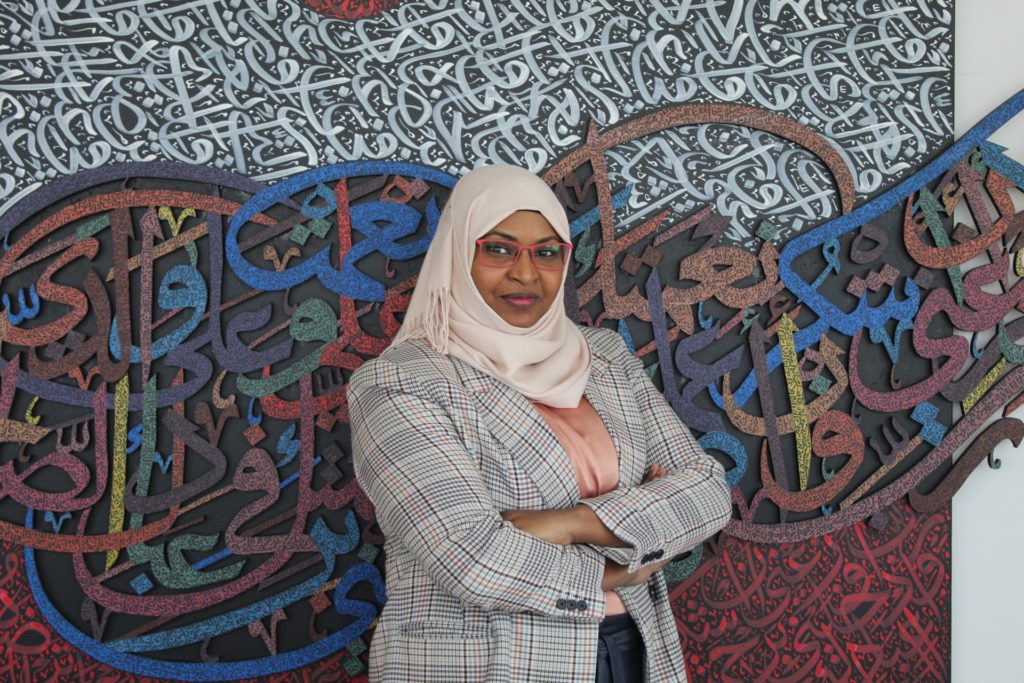
Photo: Samar Salih, Manager Command & Support Centre at EFS Facilities Services Group
EFS has over the past two decades, continuously invested in innovative, cutting-edge technological initiatives culminating in the emergence of our self-developed Smart Facilities Management Automation solution FMPro. This solution is enabled with the Internet of Things (IoT) technology to provide asset lifecycle and facilities management and is equipped with functionalities including (but not limited to) a mobility solution (EFSGO), wearable technology (smartwatches) and smart washrooms solution.
At EFS, we strongly believe in technology as an enabler for the attainment of the three pillars of sustainability (environmental, economic & social sustainability). This has led to the emergence of EFS as a regional leader in Sustainable Facilities Management services.
All assets and facilities under our care can be visualised in real-time basis using a set of custom dashboard reports including (but not limited to) asset criticality analytic graphs, real-time asset location monitoring and optimisation, asset health and energy consumption reports, warranties management and among other custom reports, to assure our clients of value for money by attaining cost & operational efficiency.
Our internal departments and functions are enabled through technology to make critical business decisions through real-time analysis with full visibility of the field operations across all the facilities we manage locally and internationally. We use video wall technology to project analytical dashboards for compliance monitoring, and our command & support centre can maintain 360-degree operational visibility and customer service interface on a 24/7 basis.
Our wearable technology solutions have enabled us to attain high operational standards by optimising our workforce and facilitate accurate decisions through efficiency analysis without compromising the privacy rights over our workforce.
By using the Internet of Things (IoT) technology, EFS has effectively moved on from traditional methods of maintenance (which are time-consuming, labour-intensive & cost inefficient), to more efficient processes based on predictive, criticality based and reliability-centered maintenance. This has resulted in the provision of value for money for our clients by increasing asset availability and reliability at optimised costs.
Our progression towards a paperless operation through technology among our 18,000 strong personnel bases, has enabled us to save hundreds of tons of paper annually and hence significantly contribute to environmental sustainability.
Attainment of higher operational efficiency levels through technology utilisation has led to overall enhanced performance efficiency for our Clients’ assets, hence resulting in a corresponding reduction in energy consumption. EFS energy management function is empowered with Internet of Things (IOT) technology to manage, monitor and optimise. Our energy efficiency initiatives contribute to the overall economic sustainability of our Clients’ facilities.
____________________________________________________________________________________________
Enova
Rachid Hamida, Technical & Performance Director, Enova, tells us how Enova is innovating to stay above the competition
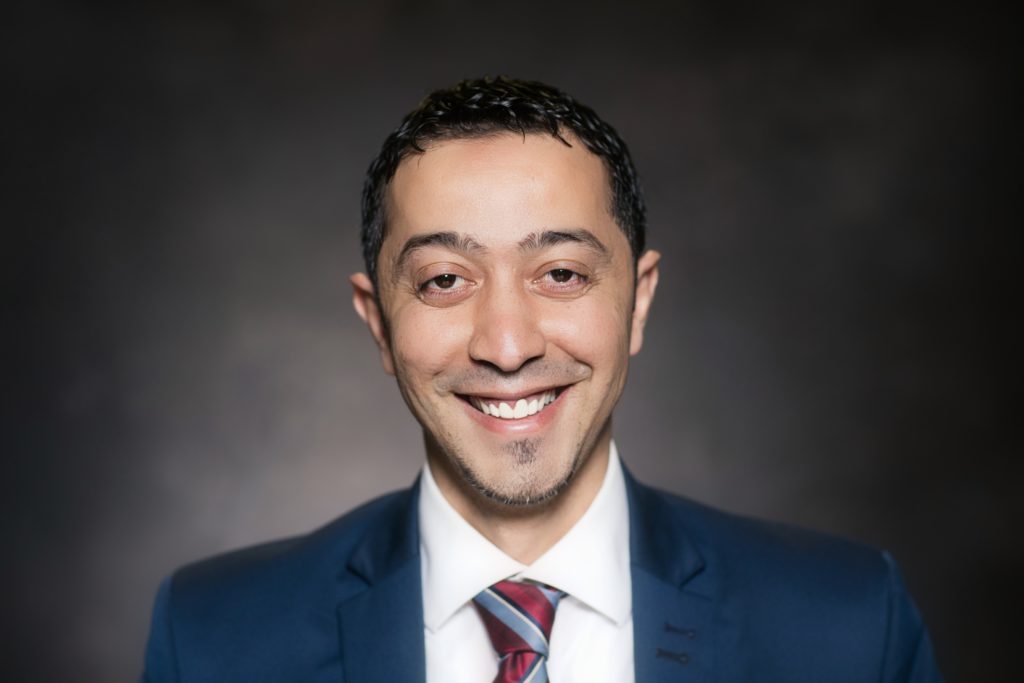
Across the Middle East, building owners and operators are increasingly transforming buildings into Smart Buildings – using embedded sensors, smart meters, and real-time Big Data analytics to enhance efficiency, reduce utilities consumption and therefore cost, and to optimize in-building experiences for the end-users. At the same time, smart buildings can also allow building managers to free up staff and optimize asset performance thanks to real-time data monitoring, automated alarms and predictive maintenance based on data analysis and forecasting.
Part of the Middle East’s push on smart buildings is government-led, such as UAE Vision 2021’s emphasis on sustainable environment and infrastructure, and part of this is driven by the private sector looking to reduce their carbon footprint and enhance utilities costs. Smart Buildings are no longer a futuristic concept, they can be both greenfield projects where energy efficiency is integrated from the design through build and management phases, and they are also enabled through the to retrofit of the existing building stock.
Enova is working on making buildings smarter and more efficient across a wide range of Middle East industry verticals – including the government and public sector, airports, malls, hospitality, healthcare, and industrial facilities.
As such, Enova supports Ras Al Khaimah Municipality in retrofitting four municipality buildings to cut energy and water usage by 31 percent. Enova also retrofitted a series of buildings with Etihad ESCO, a DEWA venture to make Dubai’s built environment a leading example of energy efficiency, with 30 percent savings on electricity and water consumption: JAFZA Accommodation Buildings and 7 DEWA Buildings.
In hospitality, the Pullman Hotel in Dubai is seeing annual savings of 19 percent on electricity and 9 percent on water. Mall of the Emirates has achieved 12 percent energy savings and City Centre Al Shindagha 14 percent energy savings. In one of the most challenging projects, the indoor ski resort Ski Dubai, Enova monitors 1,000 assets and guarantees a strong 20-minute response time to ensure a great experience for 1 million visitors every year.
Enova’s recipe for success is based on both a holistic integrated Energy & Facilities Management approach and a network of interconnected digital operational and client-relations support tools. The recently inaugurated Hubgrade 4.0 is at the core of Enova’s excellence guarantee and offers a wide range of complementary real-time information, allowing Enova to provide reliable predictive and reactive maintenance and also guarantee savings by using it as Measurement and Verification tool.
___________________________________________________________________________________________
ServeU
Gary Reader, General Manager of ServeU, describes to us on how the company is enhancing their digital road map to optimise their performance
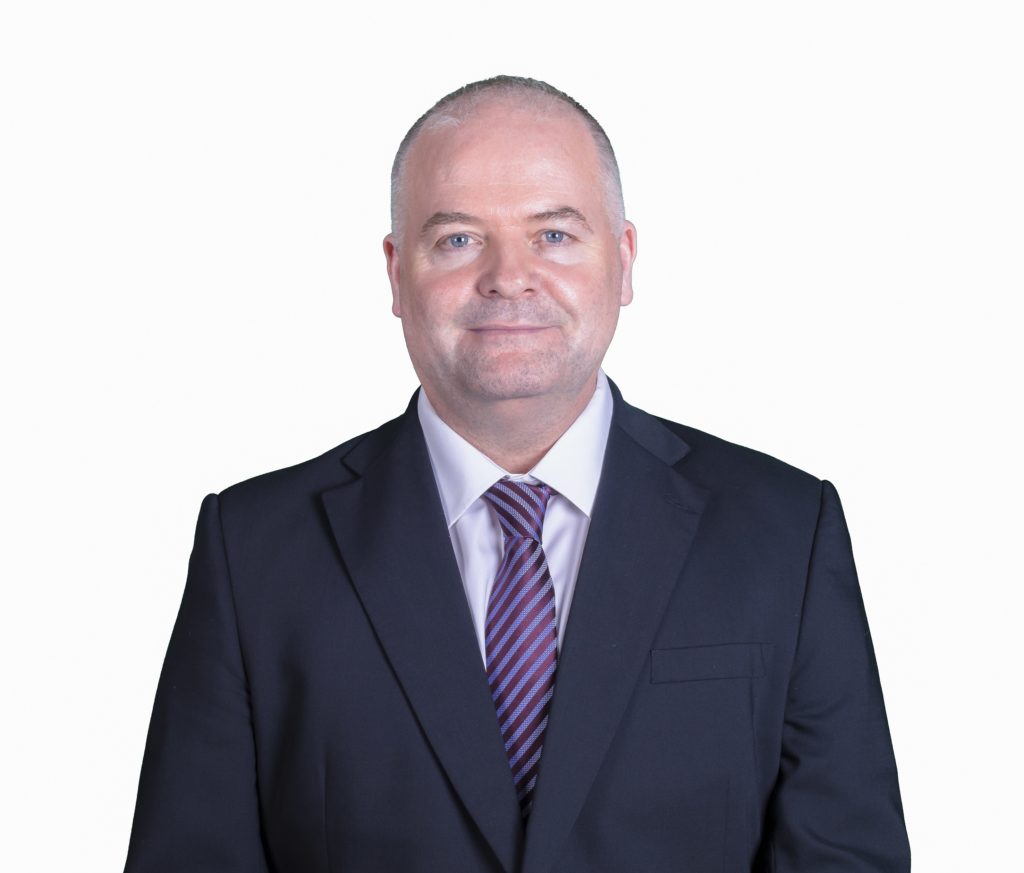
It’s been a dynamic year for ServeU, one of the UAE’s leading facilities management company, with over 40 years of experience. In its pursuit of innovative excellence, the company firmly shifts its focus, while centering its business and operational strategy on adopting new technology, and reiterating its commitment to contributing to the Smart Dubai 2021 Plan. ServeU continues to provide services that optimize resources for maximum efficiency to deliver seamless, efficient, safe and personalized FM services to its clients across multiple industries.
In line with Smart Dubai 2021 plan and as part of ServeU’s digital roadmap to enhancing operational performances through integrating smart technologies and applications, the company upgraded CAFM to FSI Concept Evolution, in efforts to become one of the first FM service providers to utilize IoT, GIS, and BIM-enabled CAFM.
As a reflection of the company’s digital adaptation, ServeU has proudly become the first company to implement NFC Tagging for the cleaning services it provides by enabling end-clients to monitor performance in real-time through FSI-GO – which, in turn, enhances customer services and satisfaction.
Today, the company boasts an 89 percent customer satisfaction rate by incorporating WhatsApp Business, social media platforms and a dedicated customer-friendly mobile application to enhance the customer service experience of their clients.
The company takes pride in their self-starter initiatives from within the organisation to optimize major services by effectively managing resources, increasing efficiency and offering tailored facility management solutions to clients across a wide range of industries.
Aside from providing services in ‘Smart Security Systems’ including parking management, CCTV installations, and maintenance, ServeU also takes great pride in its initiative to serve its clients 24/7.
The wholly-owned subsidiary by Union Properties, a UAE real estate developer with over a 30-year track record of delivering iconic residential developments, ServeU manages over 900 active projects with the help of around 5,000 highly trained staff.
____________________________________________________________________________________________
Tafawuq Facilities Management
Michael Nicholas, General Manager, Tafawuq Facilities Management, tells us how facilities management companies are deploying innovative practices in their operations
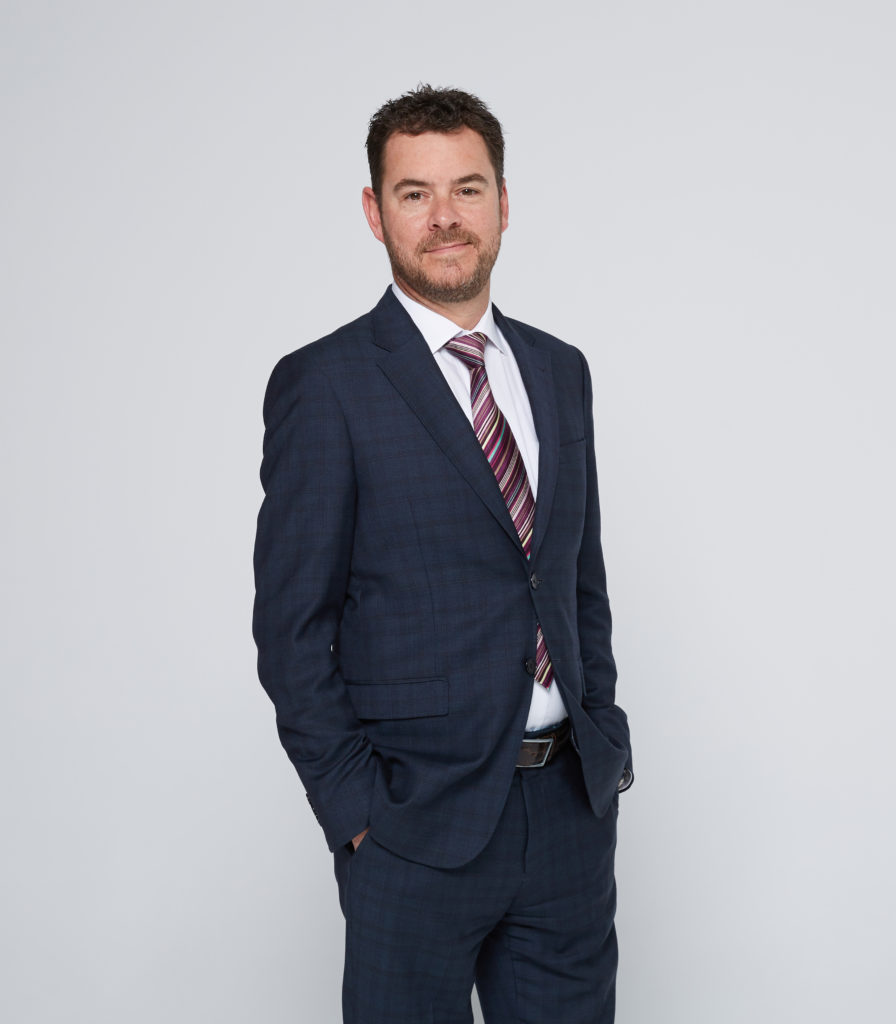
The global explosion in digital, cloud-based technology in recent years has left its mark on the GCC facilities management (FM) industry. In adopting new digital tools and platforms in what is traditionally a labour intensive blue-collar industry, the FM industry has managed to achieve substantial growth throughout the sector, focusing on business process automation, mobility, robotic equipment, drones, and more.
Leading FM industry players are now looking forward to the next wave of tech adoption which will see benefits derived from complex algorithms, Artificial Intelligence (AI), and IOT. The common goal of the industry’s technology agendas is to be able to make data-driven decisions, achieve operational efficiency, and pass cost savings to asset owners & managers.
New technologies related to maintenance and operations are appearing at a never before seen rate, and it is important that FM entities monitor emerging tech trends in the months and years ahead in order to define their technology strategies, allocate necessary budgets and in most importantly protect their competitive advantage and not be left behind.
The traditional manpower-management process at the core of facilities management is being transformed through automation, which saves time and other resources (e.g. paper, office automation) while providing more data that allows for better decision making. As maintenance or cleaning processes get digitized through mobile phones, tablets and smart watches, facility managers are in a much better position to evaluate the adequacy of resource / staffing levels, track the quality of service delivery by team / staff member and see key trends over time.
A prime example for the deployment of innovative technology in managing people and processes, encouraging sustainable practices and embracing the future is Tafawuq’s recent announcement of the launch of Tafawuq GO – a cutting edge maintenance mobility solution that has been co-developed with a UK based field service technology leader, designed to deliver a substantial reduction in paper and printing levels, in line with the company’s technology investment program, innovation agenda and environmental goals. Tafawuq GO has transformed all maintenance related processes to paperless, in accordance with local government sustainability goals, and already enhanced efficiency in our operations.
The concept of Sustainable Facilities Management has developed simultaneously with the wider theme of sustainability championed by the UAE and other developed nation governments, as well as UN Development Goals. The case for change has been successfully made and the need to balance the three strands of sustainable development – social, economic and environmental – is apparent. More and more, FM companies are being asked to demonstrate capabilities and focus on energy and water consumption reduction, which will likely be the next area for technology enablement in FM and by Property Managers.
Although unintentional, it is fitting the FM industry has universally realized the need for change and is actively seeking to develop practical sustainability goals within this rapidly evolving profession. Innovation is vital for continuation of the profession’s sustainability agenda, and facility managers are now at the forefront of strategic behavioral changes and in a position to influence the attitudes and work ethic of individuals working across business, government departments and public services within the facilities they direct.
____________________________________________________________________________________________
Transguard Group
Stephen Beesley, Chief Operating Officer – Property & Facilities Management, on how their ‘Lean Six Sigma’ programme is driving them forward.
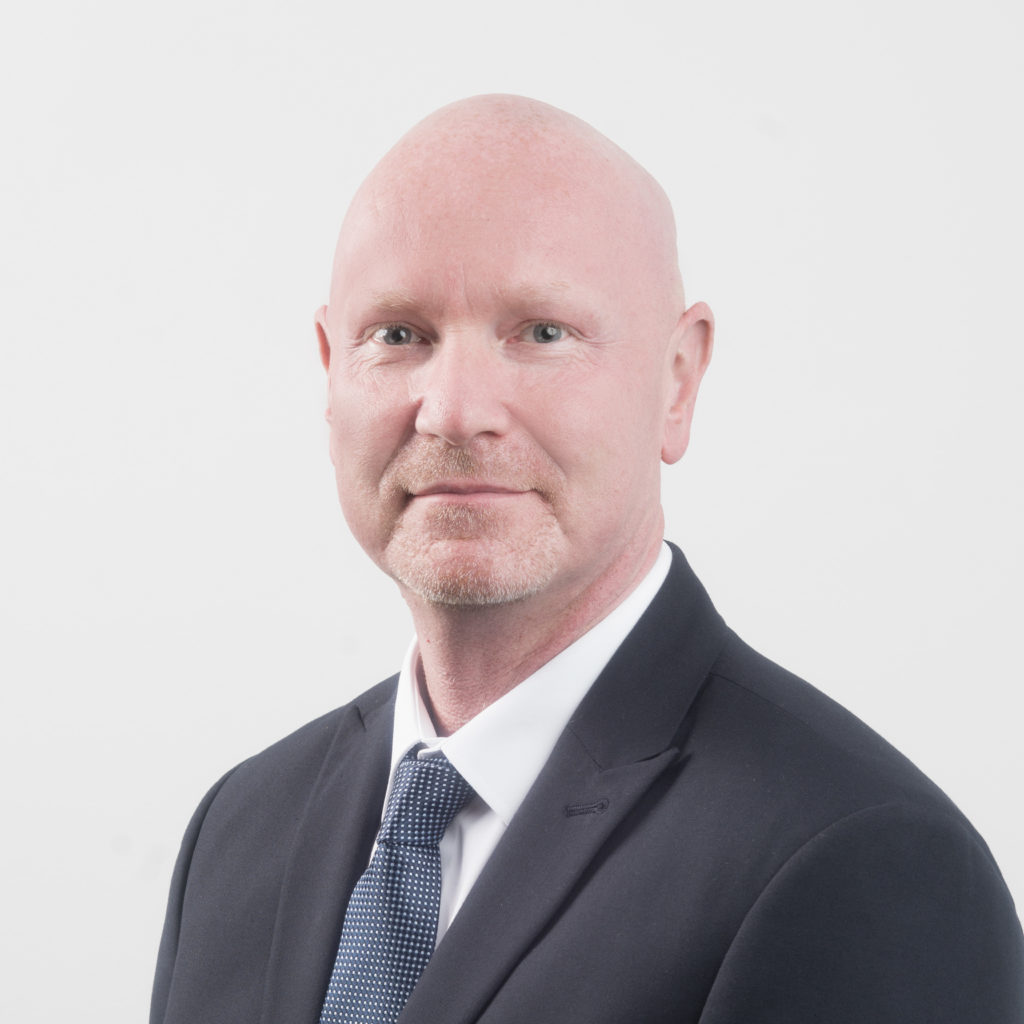
With the evolving needs of the markets that we operate in, specifically the facilities management market, it’s essential to continue to diversify and innovate to position ourselves as the most trusted support services partner in the region.
Innovation, in our eyes, does not necessarily mean technology. We’re constantly innovating and improving all parts and processes of our business, from our supply chain to rostering.
We’ve recently introduced a Lean Six Sigma programme – this methodology empowers our staff to make changes that eliminate waste and increase efficiency in their everyday work, which had a direct impact on our bottom line. The programme requires all headquarters-based employees to complete a ‘White Belt’ training, all managers to complete a ‘Yellow Belt’ training and all senior managers and above to complete a ‘Green Belt’ training. Since its launch, 819 employees have been trained, which has led to AED 212 million in continuous improvement savings. The Facilities Management team has successfully completed several Lean Six Sigma projects, benefitting the business’s and clients’ bottom line.
These projects include smart cleaning implementation, which has been used in Mall washrooms to reduce the cleaner headcount, improve customer satisfaction by ensuring the dispenser is never empty, optimizing the cleaning staff with smart rostering, the installation of automatic dispensers in washrooms to reduce the amount of soap and hand towels that are “wasted,” and delivering enough product to satisfy the requirement but reducing the overall spend on consumables.
We’ve also introduced a policy to source only sustainable consumables and materials, in addition to looking into getting larger containers for shipping so we can minimize deliveries and packaging, therefore minimizing impact on the environment.
In addition, we’re constantly looking for alternative cleaning solutions to provide more consistent, cost effective and sustainable approaches to cleaning. This includes chemical-less cleaning technologies like aqueous ozone, Zoono – an anti-microbial technology, and robotic cleaning systems like the Intelibot, which have been successfully implemented across several Transguard contracts.

